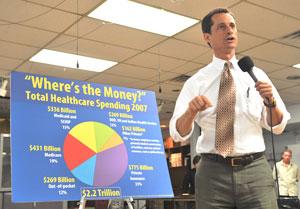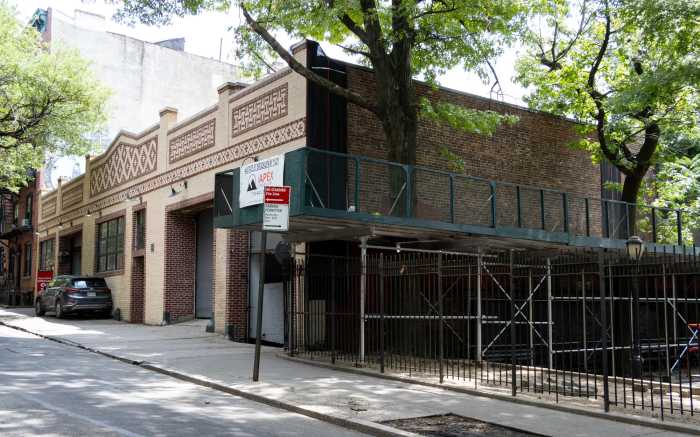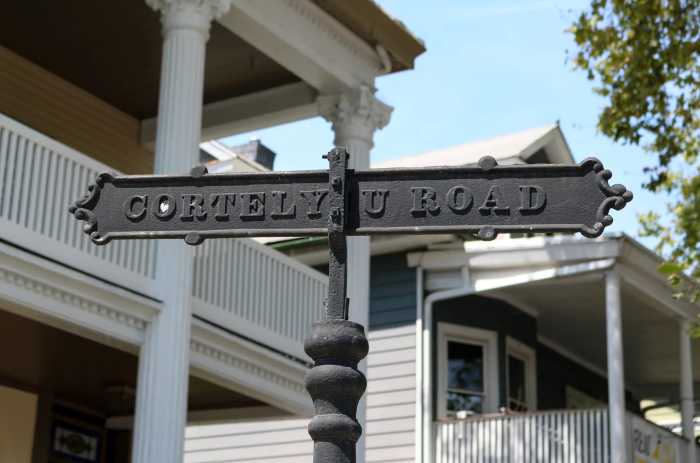Claims of moving toward Communism and taxes paying illegal immigrants’ medical bills were heard, but last week’s town hall meeting on establishing a National Health Care (NHC) system proved tame compared to similar meetings held around the country.
Rep. Anthony Weiner hosted the event at the Midwood Senior Center, 1001 Quentin Road, and it drew over 100 seniors and a few from the 40-something and 50-something demographic.
Weiner argued that now is the time to bring in a single-payer system that does away with private health insurance.
This differs from President Obama’s plan, which would create a government health care plan to augment and compete with private medical insurance plans, Weiner said.
Bringing a giant pie chart showing that $2.2 trillion was spent annually on health care, Weiner argued to fix the system now.
When Weiner asked for a show of hands of how many people in the audience were currently satisfied with their health care, a large majority raised their arms.
“The new system would be run like Medicare and basically people are satisfied with it,” said Weiner. “Right now 40 percent of all Americans already get single-payer government administrated heath care.”
According to Weiner’s pie chart, the government spends $336 billion annually on Medicaid and SCHIP (State Children’s Health Insurance Program) for people of modest means, $431 billion in Medicare for seniors and $269 billion for Department of Defense, Veteran Affairs and Indian Health Service.
Weiner said the NHC system he and Congress are proposing would run much like Medicare, a national plan that allows seniors to go to any doctor with co-payments and deductibles.
Currently, Medicaid is administered state-to-state with the federal government picking up half the cost and the state picking up the other half.
“My plan would no longer have a distinction between poor, the working and the old. It will have one covering everybody no matter where you live in the country,” he said.
Weiner said he had no current cost estimate on a single-payer NHC, but the overall cost would be lower than the $2.2 trillion total annual cost on health care in this country.
However, when Weiner opened the floor to questions, several in the audience expressed concerns about the plan.
Lorraine Breen, a widow, said she’s happy with her current coverage and has concerns because there’s a lot of corruption in government, she said.
“What’s going to be with the government controlling the country?” said Breen. “To me it sounds more like a Communist country every day.”
Breen said people who pay taxes or have paid taxes their entire working life should get treatment above and beyond those that haven’t paid into the system.
Sheryl Deblinger, who is in her late 40’s, said there are already HMOs (Health Maintenance Organizations) and it would be better to regulate more of what is already in place.
Deblinger additionally questioned why the United States should have to pay the health care costs for illegal immigrants.
Bill Schwartz, 61, a college graduate and Vietnam veteran, said he didn’t trust the government.
“Basically at least 70 percent is happy with medical care, and why turn the system on its ear because of the so called 47 million [without insurance]?” he said. “I’ve never seen a government program not grow and grow where it cost taxpayers more money.”
But Luis Lopez, who is originally from New York and worked abroad long enough to become eligible for socialized health care in Western Europe, said NHC can work if done well.
One of the upsides is that even when you lose your job you are still covered for health care, he said.
Lopez showed a European Health Card, and said it is usually cheaper to fly to Europe for health care than to see doctors and have tests here.
If done efficiently, citizens shouldn’t have to pay any extra tax money, said Lopez.
“Think of all the funds already being spent by the city, state and federal government on health care,” he added.
























